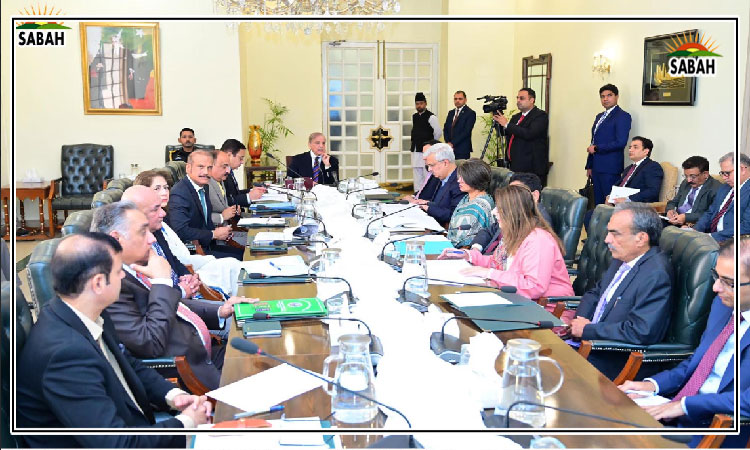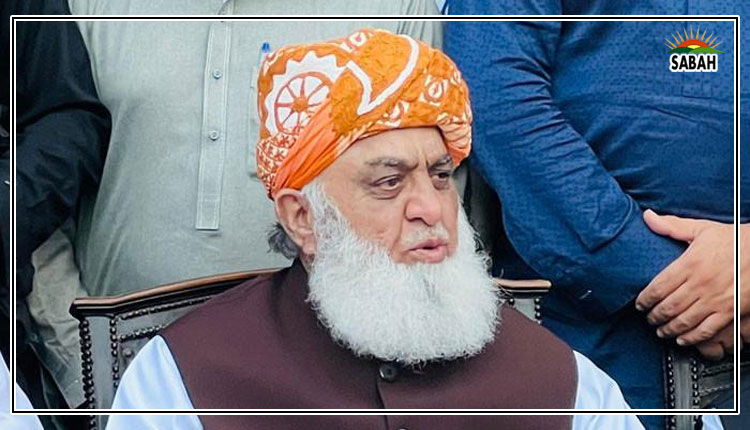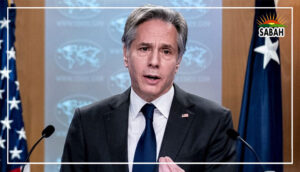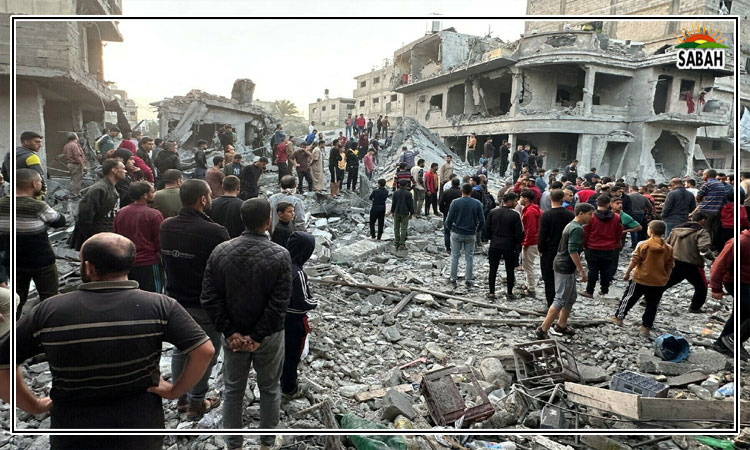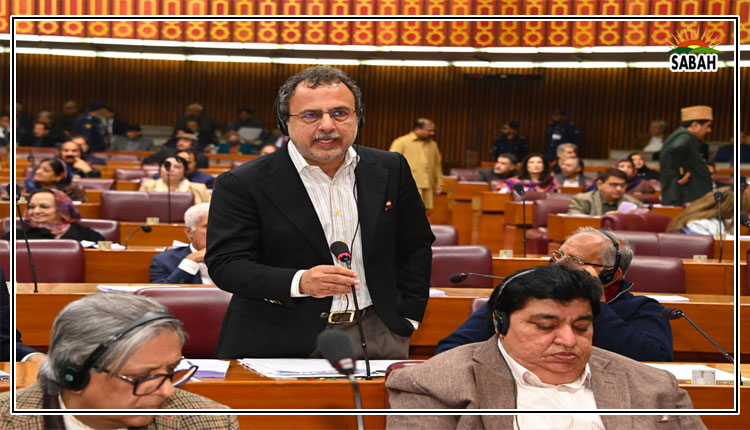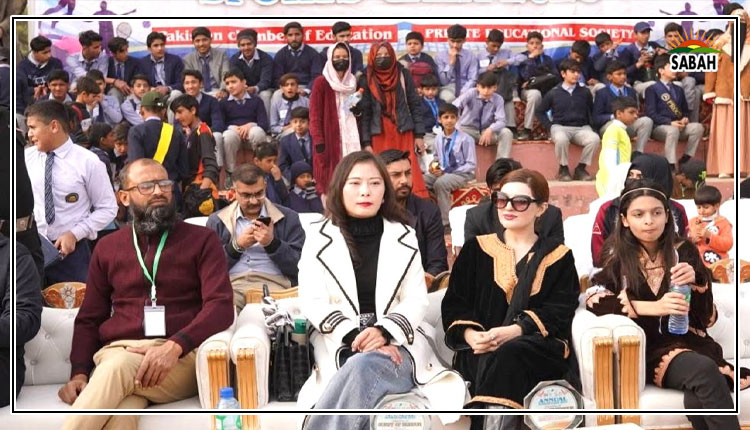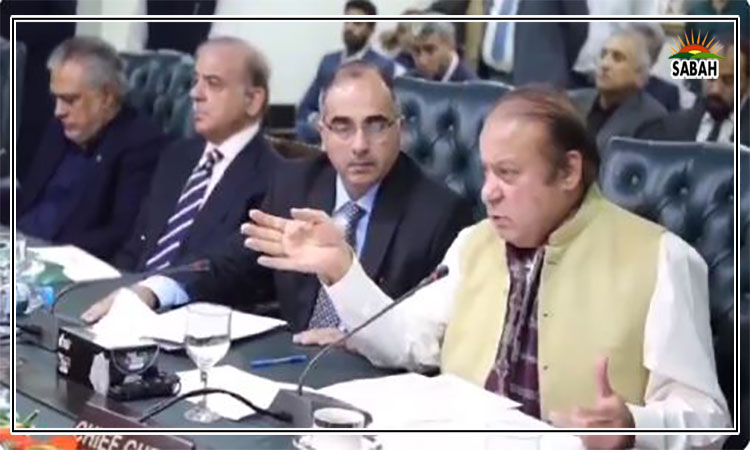Pak would have progressed & much better placed at a rapid speed, if policies initiated by his govt in 1990s were implemented without any interruption: Nawaz
LAHORE, Nov 16 (SABAH): Pakistan Muslim League-Nawaz (PML-N) Quaid and former prime minister Mian Muhammad Nawaz Sharif on Thursday said Pakistan would have progressed and much better placed at a rapid speed, if the policies initiated by his government in 1990s were implemented without any interruption.
Addressing a gathering at the Lahore Chamber of Commerce and Industry, Nawaz Sharif recalled that India had copied the policies introduced in 1990s – the first of his three tenures – and attained economic growth.
The then PML-N government helped businesses get rid of the vicious bureaucratic circles, Nawaz Sharif said about the trade liberalisation he had brought in Pakistan, which, he added, boosted the country’s national exchequer.
Other countries of the world too passed through the same phases, he noted with reference to the transition from a planned government-controlled economy to free market where the people have freedom to invest according to the needs and profitability while generating competition.
“We understand the economic hardships being faced by Pakistan,” he said, adding that rescuing the people from the current record-breaking inflation and poverty was their responsibility.
“It is their right if the people demand development, [if they] demand education and health. The government is responsible for providing these services,” the three-time prime minister stressed.
Nawaz Sharif recalled that the PML-N was not ready to form a government in 2022, but saving Pakistan from default became a priority.
The resignation speech by PML-N President and former prime minister Mian Muhammad Shehbaz Sharif, who was leading the ruling coalition, had been prepared, which checked himself, he told the audience – a development that didn’t happen but widely reported at that time. “We develop the country, [and] then face exile and imprisonment too,” Nawaz said about his repeated experience.
He noted, “We had committed injustices against our parliament and prime minister ourselves” and “then handed over the country to someone else” – a clear reference to those who deposed him and brought the PTI chairman into power.
The rupee, the economy, the entire system had been ruined as a consequence, which resulted in a fivefold increase in prices, he mentioned. The electricity consumer receiving a Rs1,000 monthly bill during the PML-N government was currently getting Rs15,000, the PML-N supremo added.
Nawaz Sharif said Pakistan jumped in ranking and was placed 24th among the world’s economies during 2013-17. “We kept the dollar [exchange rate] at Rs104 for four years,” he said and added that the dollar would have been available for Rs40 or Rs50 if his government policies were not interrupted.
About the nuclear tests conducted in 1998, he said the Muslim nations had started trusting Pakistan as their custodian after he resisted the pressure and decided to go ahead the move, but the things went wrong since then and the country was begging for $1 billion.
The current state of affairs was a product of “the poor decisions that we took ourselves”, as “we shot ourselves in the foot”, he remarked.
Nawaz Sharif also mentioned that the policy [interest] rate during his government was 6 per cent only, which had reached 22pc. “Who can do business with such a high policy [interest rate]?” he questioned.
Nawaz Sharif expressed deep concern over the economic challenges facing the nation and emphasized the need for bold and brave decisions. Nawaz Sharif regretted that the Pakistani currency lost massive value against the other currencies and questioned how people would survive in such inflation and how businesses would thrive in such an economic climate.
Accusing the previous government of showing false dreams to the nation, Nawaz Sharif asserted that PML-N leadership in 2013 was pivotal in removing Pakistan from the FATF gray list. He highlighted his commitment to both developing the country and steering it away from exile and imprisonment.
He emphasized a crucial difference between his party and others—stating, “When it comes to Pakistan, we never care about the loss of personal interest in decisions.”
Asserting his commitment to the nation’s well-being, Nawaz Sharif pledged to continue doing whatever it takes to save Pakistan.
He called for economic decisions to be made boldly and bravely, specifically advocating for cheaper electricity for domestic consumers, whom he believes are being treated unfairly. The former premier stressed the provision of health cards for the poor, emphasizing that the treatment of the less privileged is the responsibility of the state.





